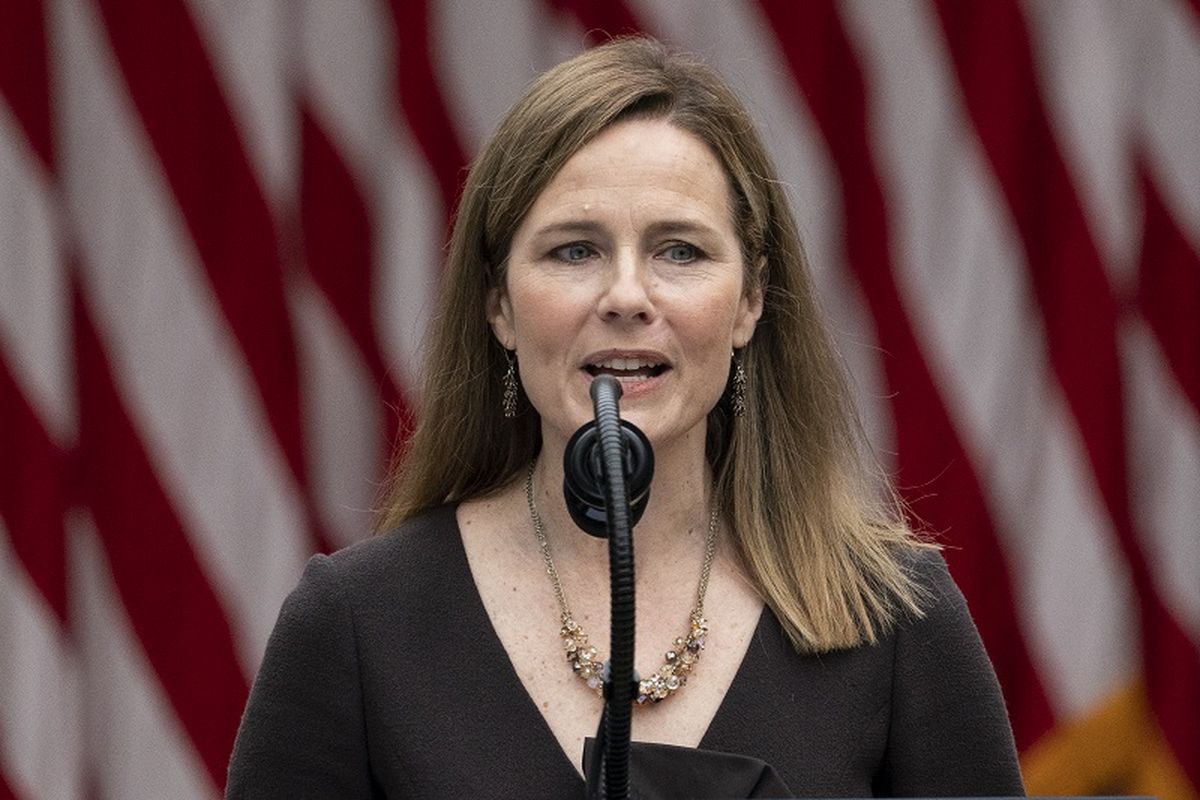Past Writings Indicate Amy Coney Barrett May Reverse Roe v. Wade

In deciding if a current law is unconstitutional, originalists put the focus on the original meanings of words in the Constitution.
Scalia criticized more liberal justices for creating new rights, like abortion, that he said the framers of the Constitution couldn’t have foreseen.
He argued, as Barrett and other originalists have, that new rights should be extended by constitutional amendments, not by courts.
Scalia said in a 2012 CNN interview that the high court's finding in Roe v. Wade that the Constitution includes a right to privacy, and thereby protects a woman’s choice to have an abortion, “does not make any sense”.
Neither, he said, do arguments by anti-abortion groups that abortion deprives fetuses due process rights.
“My view is regardless of whether you think prohibiting abortion is good or whether you think prohibiting abortion is bad … the Constitution does not say anything about it,” Scalia said.
Scalia, who like Trump's Supreme Court nominee was a Catholic, said the Constitution leaves the question up to the states.
“What Roe v. Wade said was that no state can prohibit it,” he said. “That is simply not in the Constitution.”
But Scalia often struck a pragmatic chord, warning that reversing some precedents could shatter trust in the Supreme Court.
Amy Coney Barrett highlighted his caution about casting established precedent aside in a 2017 Notre Dame Law Review article. She quoted Scalia as saying: “I am an originalist. I am not a nut.”
“His commitment to originalism,” Barrett wrote in the same piece, “did not put him at continual risk of upending settled law. If reversal (of precedent) would cause harm, a Justice would be foolhardy to go looking for trouble. Scalia did not.”
But might she?
Amy Coney Barrett did agree with Scalia in her 2013 Texas Law Review article that legal chaos could ensue if justices overturn precedents on which courts, lawyers and the public at large have for so long relied.
“People,” she wrote, “must be able to order their affairs, and they cannot do so if a Supreme Court case is a ‘restricted railroad ticket, good for this day and train only.’”
But Trump's Supreme Court nominee has also suggested that Roe v. Wade and later rulings on abortion may not be in the category of precedents that are untouchable.


































